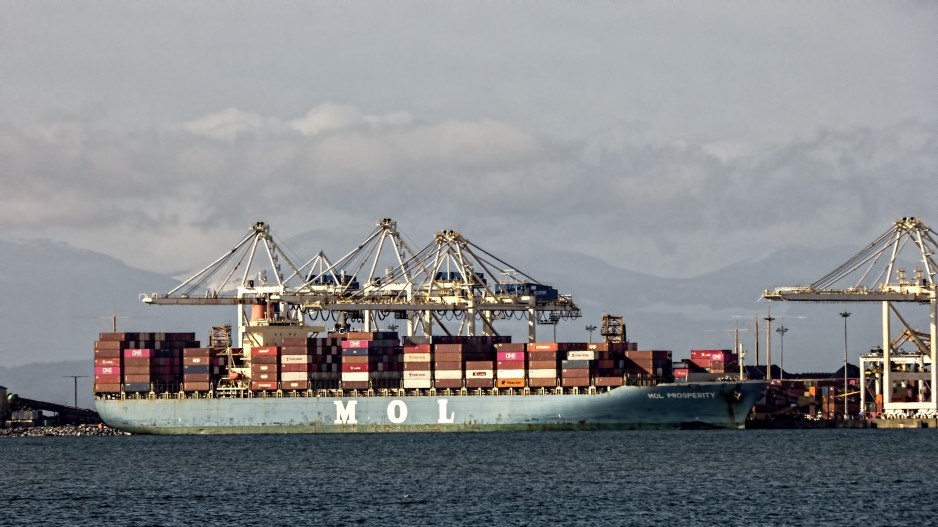A lockout of dockworker foremen at the Port of Vancouver is just one of a series of chokepoints creating logistical problems for ports, railways and shipping companies in North America, says supply chain and logistics firm ITS Logistics.
The prospect of tariffs from a Donald Trump administration could add to the logistical problems for shippers, ports, and railways, as ITS warns it could generate a flurry of imports, as exporters from countries facing tariffs try to get goods shipped to the U.S. before they are imposed.
The recent dispute at the Port of Vancouver is just the most recent labour dispute to shut down ports in North America.
Container cargo traffic at terminals on the West Coast had been halted since last week, after a labour dispute involving more than 700 longshore supervisors led to a lockout by the employer.
In Montreal, meanwhile, the Maritime Employers Association locked out 1,200 longshore workers on Sunday night after workers rejected what the employers called a final contract offer.
A temporary agreement between terminal operators and union officials on the U.S. East and Gulf Coast recently reopened ports there. Meanwhile, diversions by shippers to avoid the Red Sea – which has become too dangerous for many operators -- have created complexities and delays for cargo, container and oil tanker shipping. The strikes at American and Canadian ports add to logistical logjams that could persist for weeks.
“Container traffic entering the West Coast is still challenged today and experiencing volumes booked to avoid the Red Sea issues and East/Gulf labor union activity, which continues to test capacity in those markets,” Paul Brashier, vice president of global supply chain for ITS Logistics, said in a news release.
“This, coupled with the recent strike in Vancouver, will challenge U.S. West Coast operations as shippers find safe harbour here. This should continue into December.”
The prospect of tariffs from a Donald Trump administration also has ITS Logistics anticipating further complications.
“Industry professionals can also expect many companies to start to ship ahead of more-than-certain executive actions regarding tariffs,” ITS warns.
The firm notes that the last time a Trump administration imposed tariffs, exporters tried to get ahead of them with increased exports into the U.S.
“We now must focus attention to how potential tariffs proposed by the newly elected Trump Administration could impact supply chains, shipping costs, and overall trade dynamics in the months ahead,” Brashier said.
“In late 2018, tariffs implemented by the Trump Administration caused a significant amount of vessel and container diversions, congestion, and overall supply chain headwinds that, at the time, led to the most significant challenges ever to North American supply chains. Shippers moved billions of dollars in goods to get ahead of those tariffs.”
-- With files from Canadian Press



